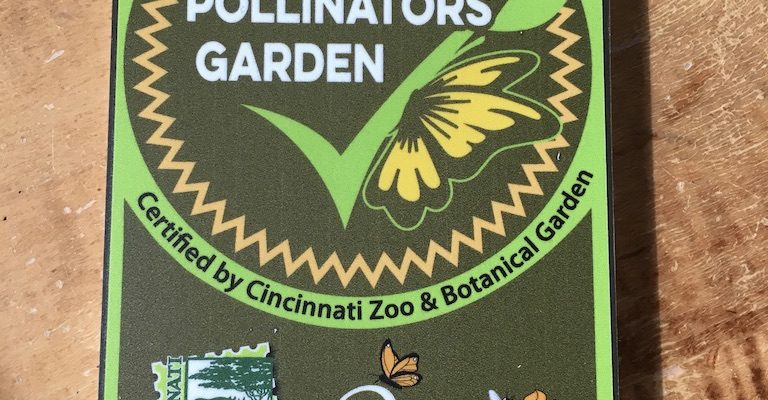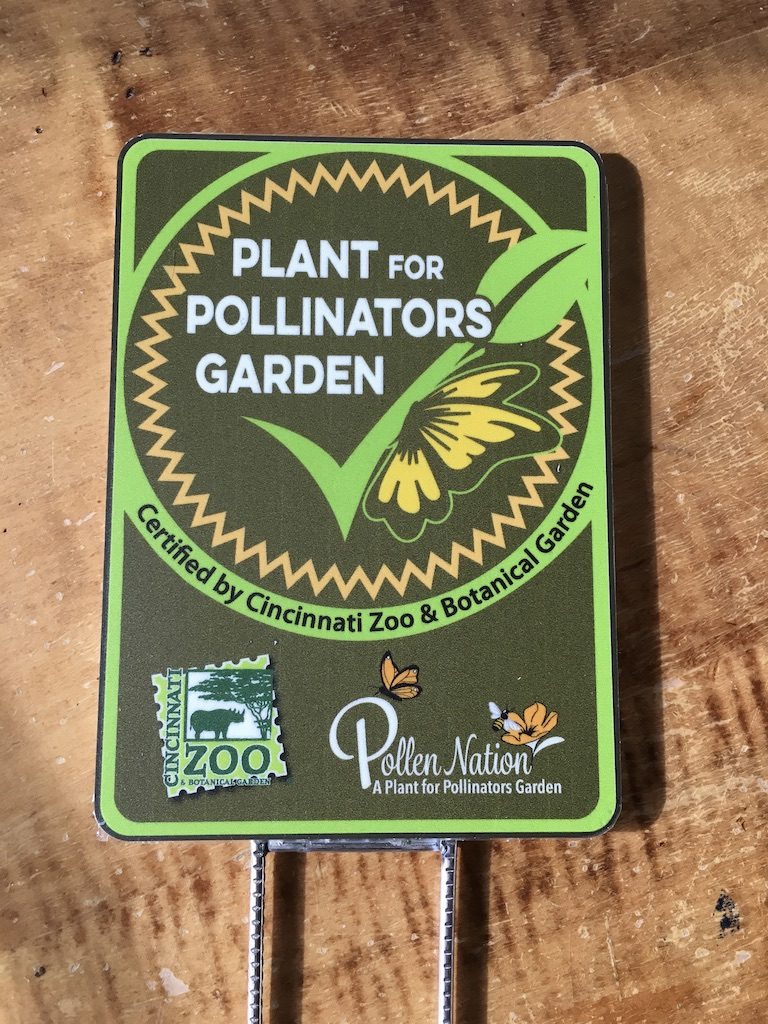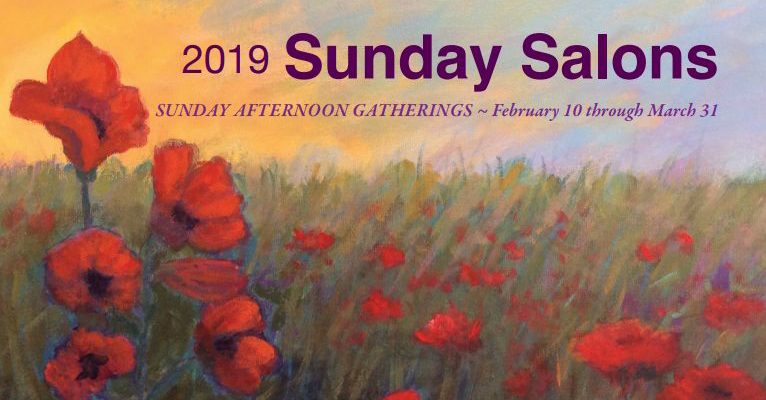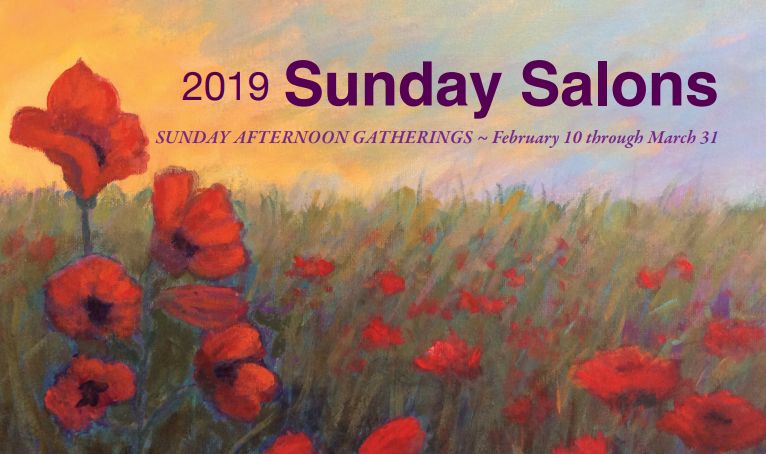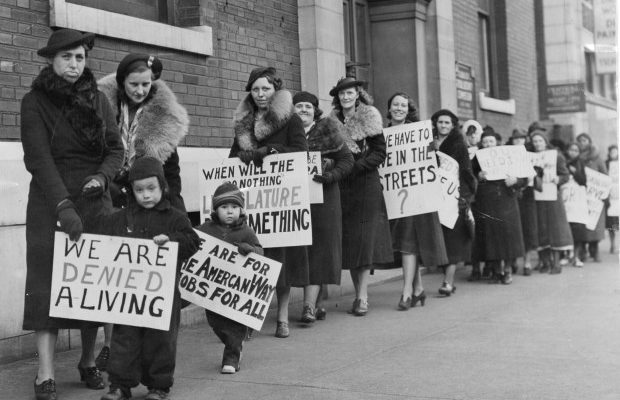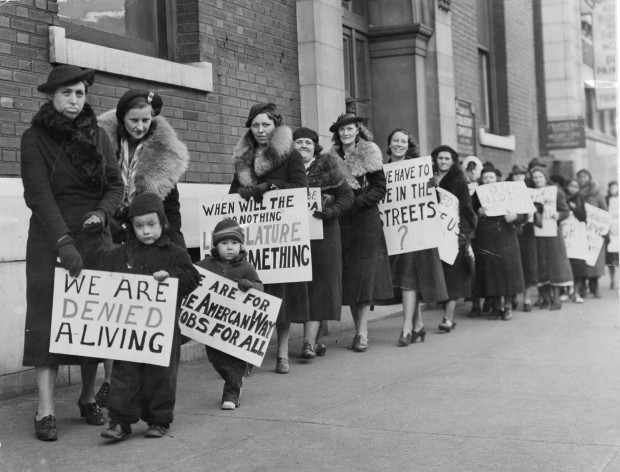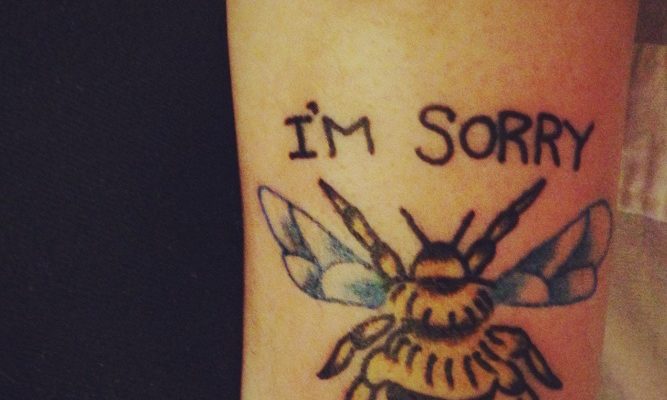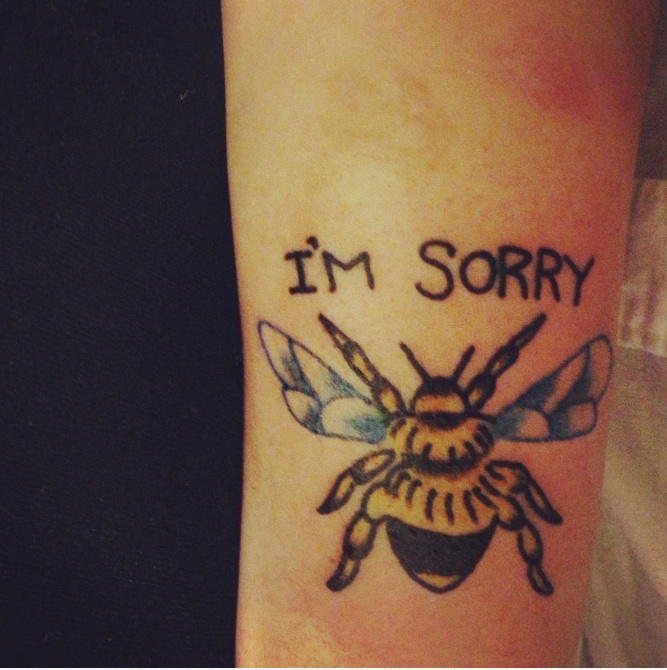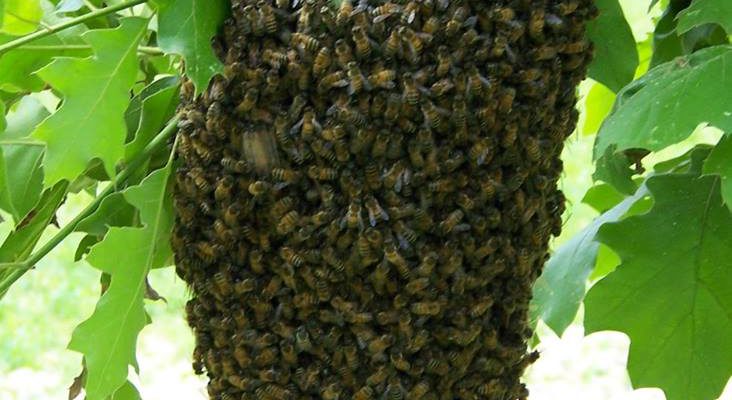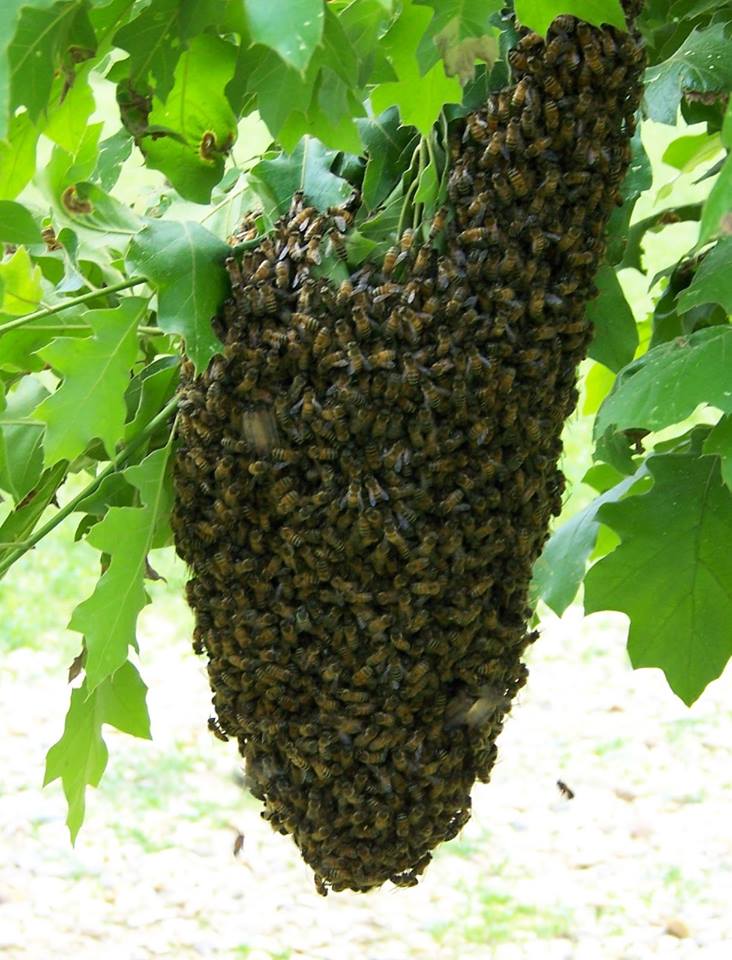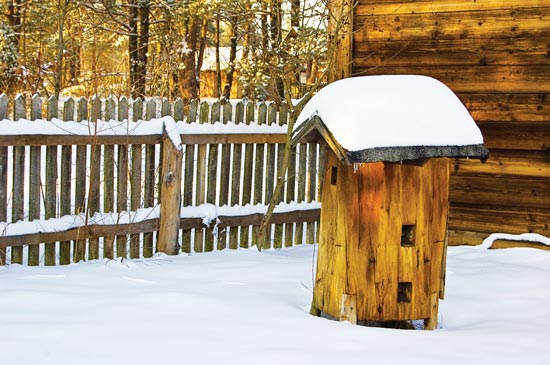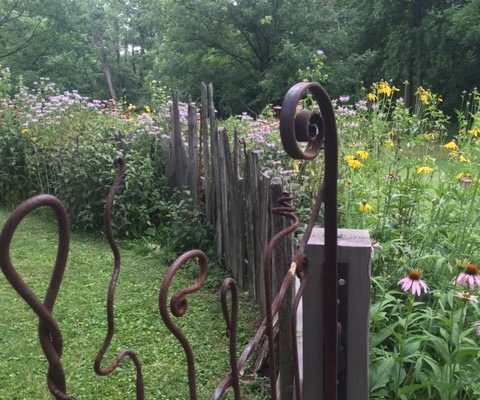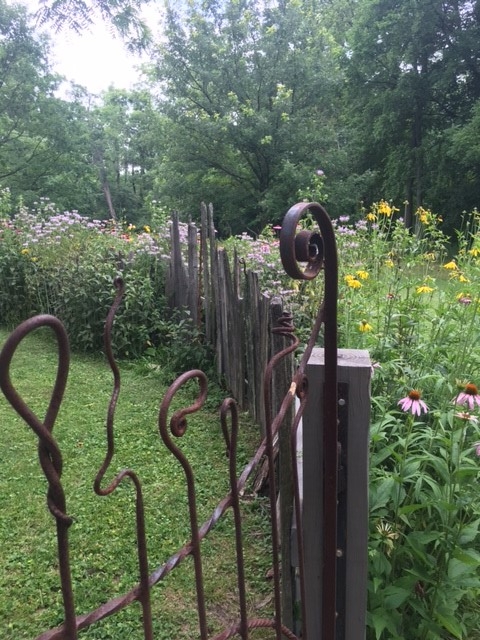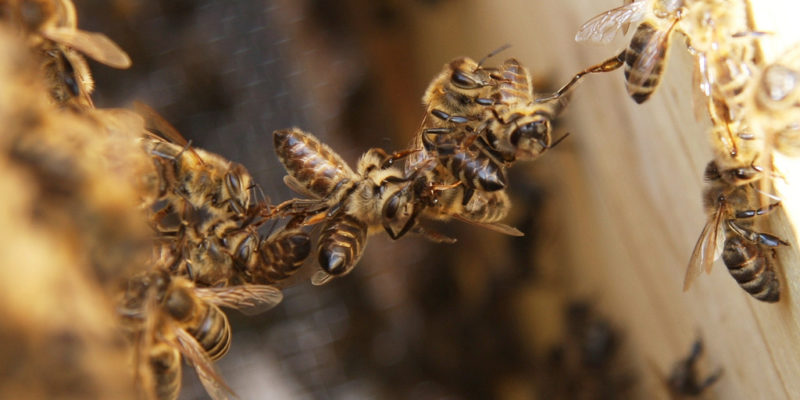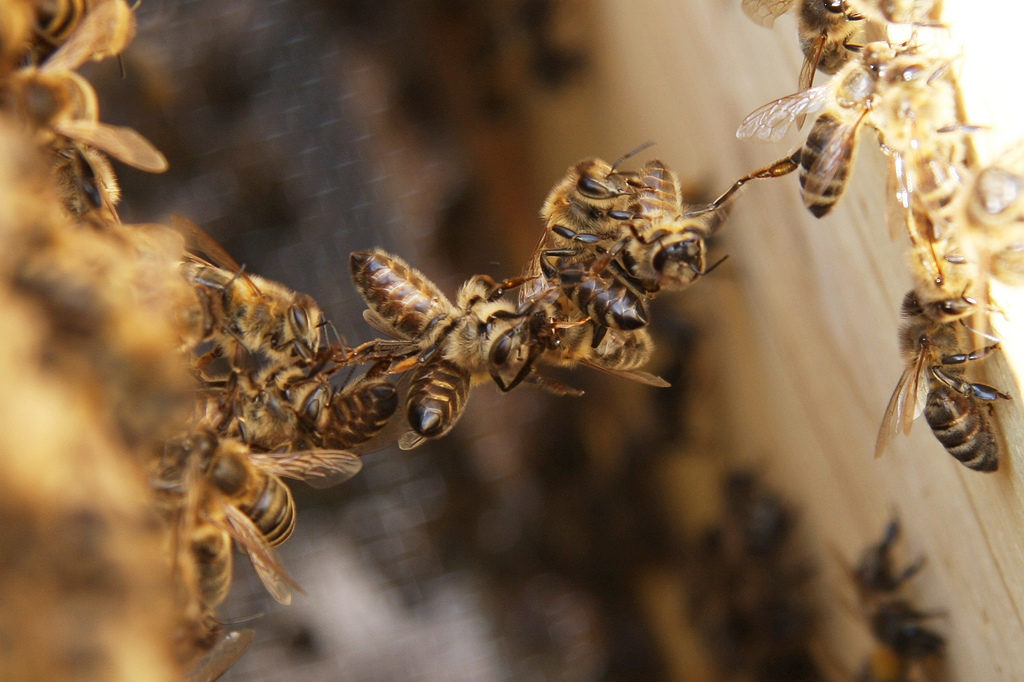Friends, I’ve just been outside planning a spot for another apiary, and THE WEATHER IS DOWNRIGHT SPRINGLIKE OUT THERE! Packaged bees arrive in Cincinnati on Easter Sunday morning, April 21, 2019….if you need a package, contact me.
But planning the site and ordering the packaged bees are only the first steps…once the bees arrive, they have to eat. And build honeycomb. And raise brood. And that takes nectar. Which comes from blooming plants. And that’s where the Cincinnati Zoo and Botanical Gardens comes into play right now.
The CZBG has begun a Pollinator Garden Challenge, and I implore you to register your garden on their website. I registered mine a few weeks ago, and then I received their very nice little garden sign in the mail. The sign indicates to my neighbors, any visitors to my yard, or all the Sunday-afternoon drive takers who cruise down my street that the glorious flowers they’re seeing are recognized by the Zoo as a pollinator garden.
If you don’t already have pollinator-supporting flowers or bushes or trees planted in your yard, you can start right now, right here. Then register your garden and let the Zoo know you’ve become a part of Cincinnati’s garden solution.

